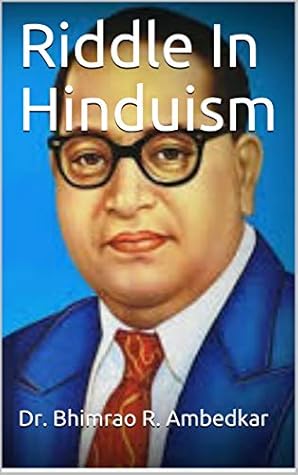Kindle Notes & Highlights
How repugnant is the idea of a God being married is well illustrated by the difficulties which early Christians had in persuading the Jews to accept Jesus as the son of God. The Jews retorted saying God is not married and how can Jesus be the son of God.
The Hindus used the words Krita, Treta, Dwapara and Kali as the names of the four Yugas or periods into which historical times are divided. As a matter of fact originally these are the names of the dices used by the Aryans at gambling . The luckiest dice was called Krita and the unluckiest was called Kali.
It was a simple communism where many men shared a woman and no one had a private property in or exclusive right over a woman. In such a communism the woman was called Ganika, belonging to many. There was also a regulated form of communism in women among the Aryans. In this the woman was shared among a group of men but the day of each was fixed and the woman was called Warangana one whose days are fixed.
That Rama and Sita both drank wine is admitted by the Ramayana. Uttar Khand says: "Like Indra in the case (of his wife) Shachi, Ramachandra saw that Sita drank purified honey called wine. Servants brought for Ramahandra meat and sweet fruit
No Hindu will kill an animal not even for food. Except for a small caste known as Khatiks there are no butchers among the Hindus. Even the Untouchables will not kill. He eats the flesh of a dead cow. But he will not kill a cow. In India today the butcher is a Musalman and any Hindu who wants to kill an animal for his food has to seek the services of a Musalman. Every Hindu believes in Ahimsa.
No one becomes a Brahman by repeating the Gayatri, the mother of the Vedas: he is called a Brahman only when he has knowledge of Brahma. The ambrosia of the gods is their Brahma, and on earth it is arrack (or liquor distilled from rice); and because one attains through it the condition of a god (suratva), therefore is that liquor called sura."
Why did the Brahmins repudiate father Manu and start again drinking liquor and flesh eating which Manu had stopped? This is a riddle.
Birds, tortoise, allegators, fish, nine species of wild animals, buffaloes, bulls, he-goats, inchneumons, wild boars, rhinoceroses, antelopes, guanas, reindeer, lions, tigers, men and blood drawn from the offerer's own body, are looked upon as proper oblations to the Goddess Chandica, the Bhairavas &c."
"By a human sacrifice attended by the forms laid down, Devi is pleased one thousand years and by sacrifice of three men, one hundred thousand years.
"Let a human victim be sacrificed at a place of holy worship, or at a cemetery where dead bodies are burried. Let the oblation be performed in the part of the cemetery called Heruca, which has been already described, or at a temple of Camachya, or on a mountain. Now attend to the mode."
This is the Dharma which the Kali Purana preaches. After centuries of Ahimsa ordained by Manu here is Himsa in full blast sanctioned by the Tantras in its worst and all inclusive form— animal and human Himsa.


